Middle school was rough for Jaya Athuluru. She dealt with multiple seizures that caused various injuries. Getting diagnosed with epilepsy changed not only her life but her career path. Instead of following her parents into computer science, she chose to focus on something more personal: neurology.
“The biggest issue with epilepsy is you’re unaware when (the seizures) are about to come on, so they’re unexpected,” Athuluru says. “You could be doing your normal daily activities, whether you’re eating or walking down the stairs, taking a shower, and falling into the postictal state, where you don’t necessarily have control of your body.” These episodes can be “very harmful to the patient, along with the brain effects as well.”
With co-founder Simran Lallian, Athuluru developed EpiSense, a wearable device that detects irregular spikes in electrical brain activity and alerts patients and emergency contacts five minutes prior to an episode if a seizure seems imminent.
“It allows for another security blanket, so they’re aware that this is happening to you,” Athuluru says. “You’re aware that there are people that you don’t have to immediately contact within this time, and you can take care of yourself, but they’re still aware.”
If the seizure starts and lasts more than five minutes — posing a risk of long-term brain damage — the device will automatically notify emergency services.
For the UC Davis undergraduate duo, the EpiSense concept has been racking up awards, including winning the UC Davis Big Bang competition and PLASMA Demo Day, organized by the UC Davis Student Startup Center. PLASMA gave the startup team tools to develop the business, building a solid foundation the co-founders will use to look into FDA approval and apply for grants.
Aaron Anderson, director of the Student Startup Center, acknowledges how uncommon it is for undergraduates to be spearheading a medical device startup. In this case, he says, the co-founders have shown a great combination of drive and research chops.
“They dug in, worked with faculty and mentors in the medical profession,” Anderson says. “They weren’t about to let their young years slow them down in a field dominated by people who have been around forever.”
Usually, he adds, teams are either good at confidence or coachability, but the co-founders possess both traits. Anderson “learned a long time ago” not to weigh in on the viability of a startup, but he asks a couple questions when assessing the potential of an idea. Is this a real problem somebody has that they’re willing to pay for? What evidence exists that shows you’re on to something?
The problem is clear, considering about 50 million people worldwide have epilepsy, according to WHO, making it one of the most common neurological diseases. The team spoke with many epilepsy patients, and Athuluru could draw from her personal experience to highlight the need for their device. For many patients, Lallian adds, medication doesn’t work or causes unhealthy side effects.
The $10,000 award earned at Demo Day will go toward development of the hardware and software. The next step for the team is to develop the EEG headband prototype and figure out sizing.
“In order to get the accurate data, electrodes have to be placed in specific places,” Lallian says. “So being very precise about that and catering to different head sizes is something that you also have to play around with and figure out, especially with the range of little kids to full adults.”
The device will be connected to an app, allowing patients to log information about an episode and access their past EEG data, easily exportable to their neurologist. Currently, the team includes co-founders Athuluru and Lallian, plus six others. At this early stage, the startup is focused on non-equity based funding to support the development of the prototype.
“With EpiSense, our goal is to give the patient back their freedom with that predictability aspect,” Athuluru says, “allowing them to know when their seizure is coming and take preventative measures for those injuries.”
–
Stay up to date on innovation in the Capital Region: Subscribe to the Comstock’s newsletter today!
Recommended For You
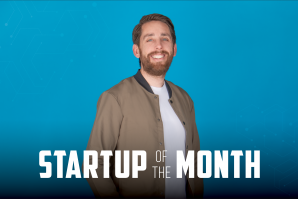
Startup of the Month: Unstructured
Company helps businesses turn raw data into AI-friendly formats
Think about a global company where each department has its own unique jargon, and employees speak different languages. To thrive, this company would need a way to keep valuable information from getting lost in translation.
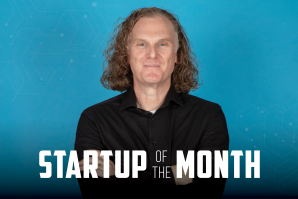
Startup of the Month: 811spotter
Ticket management software for contractors’ efficiency, safety
811 is the national toll-free, call-before-you-dig number. Homeowners, excavators and contractors must call 811 before excavating to have underground utility lines marked to prevent accidental damage. But the system is flawed and inefficient, according to 811spotter co-founder and CEO Marc Krichman.
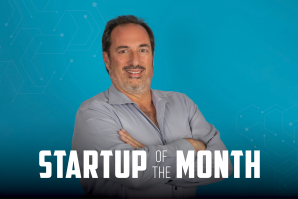
Startup of the Month: Soar Optics
Company targets microplastics in water with high-tech microscopes
Microplastics can be found everywhere, from Antarctica to Mt. Everest to breast milk. A Western Regional Winner in 2022, Soar Optics develops technology to identify these microscopic particles in water.

Startup of the Month: Inspirame
College and career navigation platform aims to repair education pipeline
In 2019, CEO Maria Medrano co-founded the equity-driven startup Inspirame to repair these critical gaps in college enrollment and workforce development.
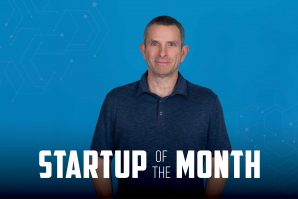
Startup of the Month: AgriNerds
Mapping tool helps farmers track carriers of bird flu
In recent years, avian influenza (or “bird flu”) has been on a rampage, wiping out wild and domestic birds, disrupting the environment, and causing a shortage of eggs and poultry meat. The Davis-based startup AgriNerds aims to help farmers to identify potential risks and protect poultry against the threat of diseased ducks.
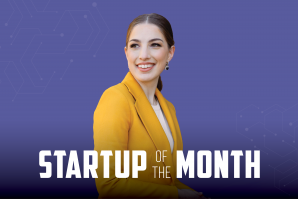
Startup of the Month: 3D Organic Polymer Silk
Trio of researchers aim to revolutionize orthopedic medicine with spider silk
With over 3 billion years of evolution under its belt, the natural world has a pretty long track record of creativity. Knowing this, three interdisciplinary researchers at UC Davis looked to the golden silk orb-weaver spider to develop an innovative biomaterial.




